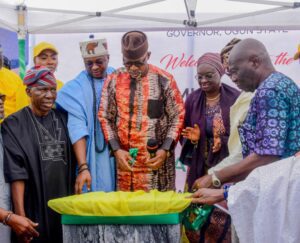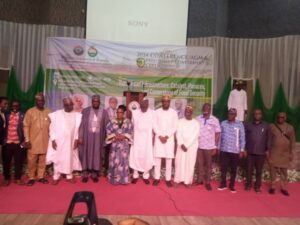
Temporary closure of all tertiary institutions to allow students vote: Time for President Muhammed Buhari to Act
#FixPolitics, a citizens-led, research-based movement designed to structurally change and innovate politics in Nigeria and Africa as a whole, calls on President Muhammed Buhari to direct the National Universities Commission (NUC), the National Board for Technical Education, and the National Commission for Colleges of Education through the Federal Ministry of Education to temporarily close all tertiary institutions for five days beginning from February 22 to February 27, 2023 with the goal of enabling students of tertiary institutions across the country to travel back to their places of residence to exercise their franchise in the February 25, 2023 elections. The same should apply to the subsequent Governorship and House of Assembly elections scheduled for March 11, 2023.
It will be recalled that the Independent National Electoral Commission (INEC) registration exercise in 2022 took place within the period of the prolonged ASUU strike which means that majority of students must have registered to vote in their various Local Governments of residence. The significance of this call is further magnified by the recent announcement by the INEC Chairman to the effect that students account for 40 per cent of the 9,518,188 newly registered voters. Prior to this announcement, INEC had already acknowledged in 2022 that there was an unprecedented surge in youth turnout for the continuous voter registration (CVR) exercise, which produced over two million new voters in one month.
Government should be seen to be doing everything necessary to encourage all eligible citizens to come out and vote on election day. Nigeria is at a critical crossroad and the 2023 elections is a defining election, the outcome of which will either produce transformational leaders who have the character, competence and capacity to arrest the drift of the Nigerian state or return the same old politicians who directly contributed to bringing Nigeria to its present hobbled state. It is therefore imperative that all hands must be on deck to educate citizens on the importance of coming out to vote and to do the needful to facilitate their coming out to vote.
We commend INEC for twice extending the allotted time to give more opportunity for citizens to collect their PVCs. It is now incumbent on the Federal Government of Nigeria to take executive action to ensure that students who have collected their PVCs are not denied the right to vote because tertiary institutions are in session. To do otherwise will amount to discouraging and disenfranchising the huge number of Nigerian students who answered the patriotic call to go and register and collect their PVCs.
The urgency of the moment demands patriotic and decisive action. President Mohammed Buhari has in several public statements assured Nigerians that he is determined to leave behind a legacy of free and fair elections. Giving the directive now for all tertiary institutions to temporarily close for five days to allow students to travel home to vote will be a compelling and convincing step in the right direction to further convince Nigerians of his sincerity.



